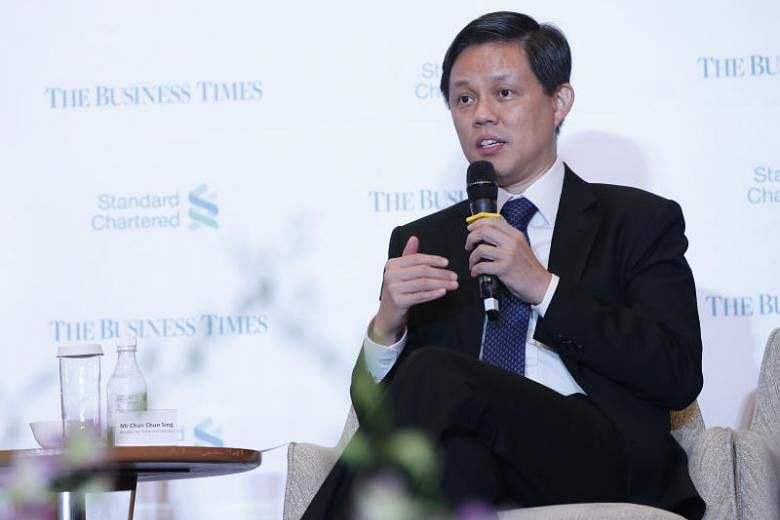SINGAPORE - Even as he challenged the next crop of civil service leaders to build a better system, Minister-in-charge of the Public Service Chan Chun Sing urged them to uphold the values of meritocracy that has allowed Singapore to come so far.
Speaking to this year's Public Service Commission (PSC) scholarship recipients in a ceremony at the Grand Copthorne Waterfront Hotel on Wednesday (July 18), he also highlighted the need to ensure a diversity of experience and background within the country's leadership, especially since the issues facing Singapore are expected to grow more complex.
"We need to be like the Swiss-knife," he said, "so that regardless of the challenges going forward, we will have the diverse skillsets within Team Singapore for us to overcome the challenges together."
The 93 scholarships were awarded to recipients from 15 different schools, of which seven were non-Integrated Programme institutions, including Anglo-Chinese Junior College, Pioneer Junior College, Saint Andrew's Junior College and the Singapore Polytechnic.
"Our promise to each and every generation of Singaporeans is this, that so long as you are capable and committed, our country will provide you with the best opportunities possible for you to fulfil your potential," said Mr Chan, adding that belief in such a system will continue to attract the best to serve the nation.
Despite the odds, Singapore has survived and thrived for the last 53 years because it has been able to recruit and develop leaders who were committed to turn every constraint into an opportunity.
"If we do not have enough water, we will make sure that we build sufficient capacity for us never to be held ransom. If we are a small country without resources and sufficient market, we are determined to build the links to connect ourselves to the rest of the world, so that we will transcend the limitations of our size and geography," said Mr Chan. "And there will be many, many more challenges that Singapore will confront in the years to come."
Mr Chan, who is also Minister for Trade and Industry, told the scholars to "never be complacent that we have arrived".
Instead, he advised them to be "alert" to challenges facing the world and not confine themselves to a narrow field of study; to "analyse" events and not accept what people say at face value; to "apply" what they see overseas to the Singapore context; and to "anticipate" future challenges the country may face and have the ability to adapt.
"If we can do all these collectively as a team, I am certain that the next generation of Singaporeans will have even better opportunities than this generation."
Mr Chan also paid tribute to Mr Eddie Teo, who after 10 years as the current PSC chairman and close to 50 years in the public service, is set to retire at the end of the month. It was in his time that scholarships were awarded to students from a wider range of schools, including polytechnics, and they were encouraged to venture beyond traditional destinations for their studies, with some heading to Egypt, Israel and Thailand.
This year, two scholars will be heading to Peking University in China, while another two will be studying in Germany. "We hope that as they take these less trodden paths, they will enrich and add to the diversity of views when they return to serve," said Mr Teo.
In his message, the 71-year-old reminded the scholars to remain humble and recognise that their success is also due to the support and guidance from their family, teachers, principals and peers. Touching on diversity, he said how "some of our scholarship recipients come from challenging family and personal circumstances. That they have done so well shows their resilience and determination - qualities that are as vital as high intellect and academic excellence".
He urged the scholars to have the courage to express their own views, even if they contradict current thinking and existing policies.
"We can only improve if our public servants do not blindly follow orders but also question and challenge assumptions, in order to see the best possible solutions to our problems," he said. "When public servants see that a decision or policy is wrong, they must be prepared to speak truth to power."


